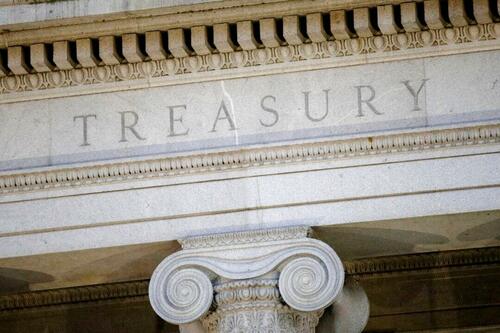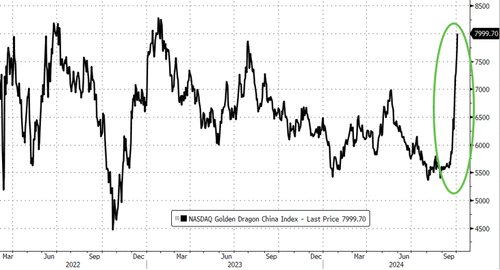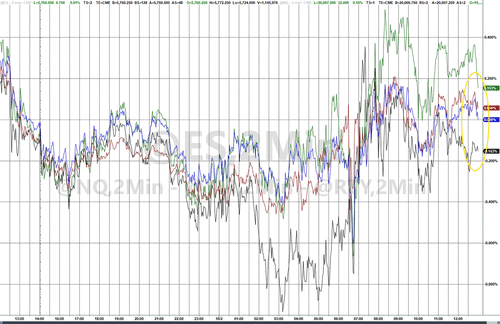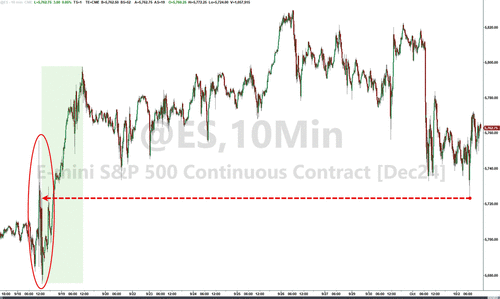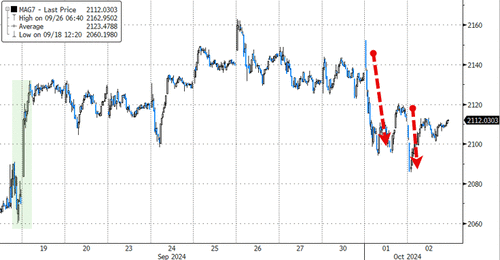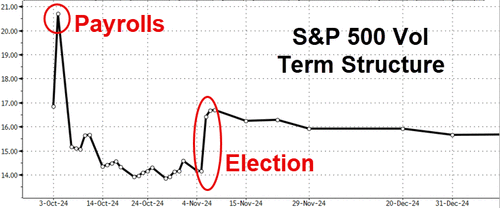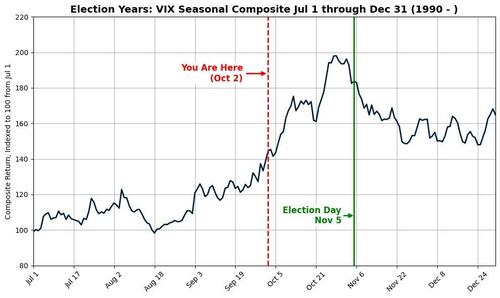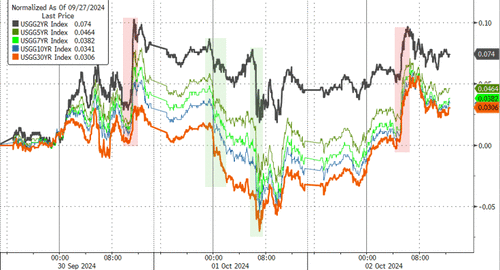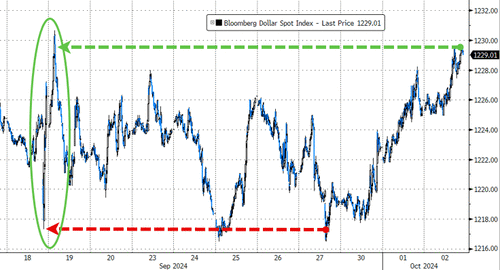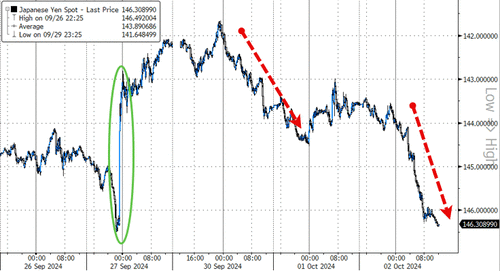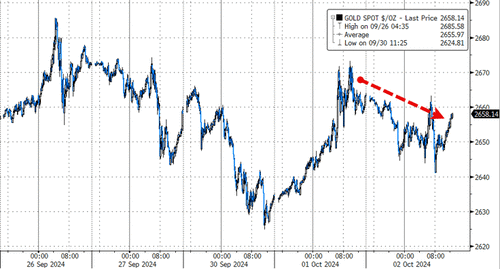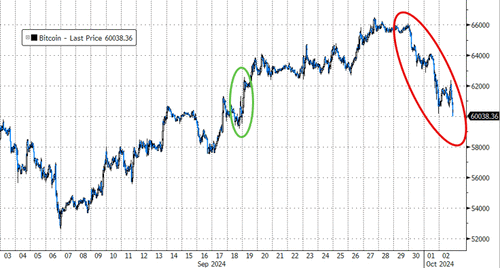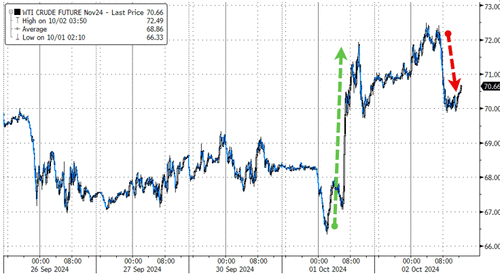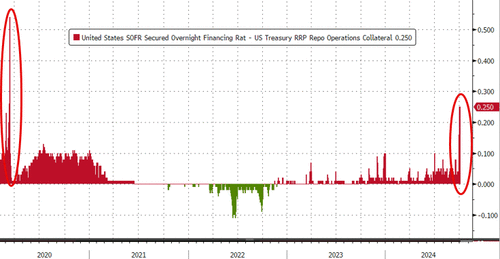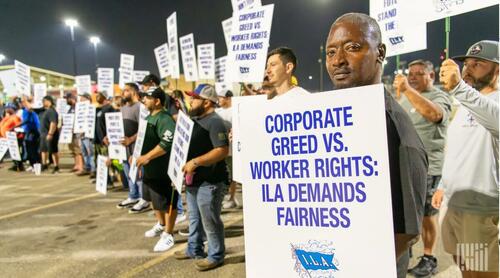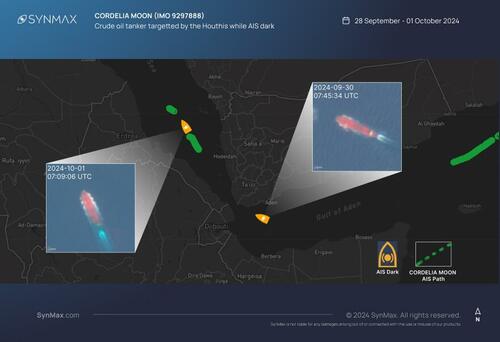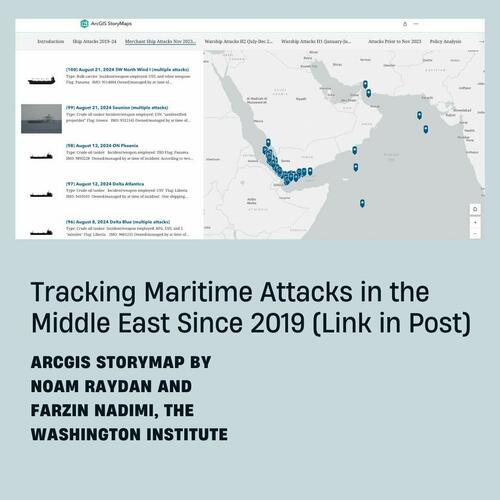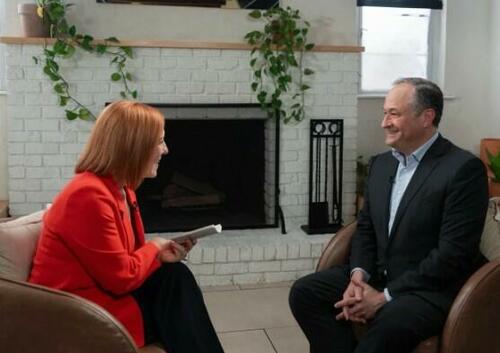America’s Dwindling National Wealth
Authored by Michael Wilkerson via The Epoch Times,
What is a rich country? In relative financial terms, it is a country whose net investment position is positive. The net investment position reflects how much one country owns of all other countries’ assets, less how much those countries own of it.
Throughout most of the 20th century, the United States’ net investment position was not only positive but also the highest in the world. Those days are over. Today, foreign governments, corporations, funds, and wealthy individuals own tens of trillions more of U.S. stocks, bonds, real estate, and other assets than we own of theirs.
The U.S. Bureau of Economic Analysis (BEA) recently released information revealing that the United States’ net international investment position, the difference between U.S. residents’ foreign financial assets and liabilities, hit an all-time low of negative $22.5 trillion in the second quarter of 2024.
Breaking it down, U.S. entities and individuals owe other countries $58.5 trillion. These countries will earn interest, dividends, and capital appreciation over time on those assets. That represents future income and wealth accumulation potential that is flowing out of the United States into other’s hands, way too much to be offset by the $36 trillion in foreign assets U.S. residents hold. We are, in effect, transferring our children’s inheritance to strangers, impoverishing future generations of Americans so that we can consume more ourselves today.
The decline in American wealth is accelerating rapidly.
On the eve of the global financial crisis (2007), the U.S. net international investment position was negative $1.2 trillion, having turned negative just a few years before.
A dozen years later, on the eve of the COVID-19 pandemic (2019), this deficit had grown by $10 trillion to negative $11.7 trillion. Since then, the negative gap has grown by an additional $10 billion in just five years. Of this amount, $6 trillion has been lost in the last two years alone. Let that sink in.
The cause is obvious. As a nation, we are consuming more than we produce, and borrowing to do so. This is true of our government, our corporations, and our households. Each of these groups is over-leveraged and living beyond its means through excessive borrowing enabled by incontinent monetary and fiscal policies alike. We are borrowing from our futures and that of the nation, with no obvious means of repayment.
The cure is as simple as the cause, though painful to follow through on. It requires substantial changes to our economic policies and regulatory framework. First, we must close the over $1 trillion annual trade deficit. Free trade isn’t free if it isn’t fair, and many of our trading partners have not treated the United States fairly. For years now, the United States has been subject to currency manipulation, industrial espionage and IP theft, state subsidies of foreign national champions, artificially low lending rates enabled by foreign central banks, and the closing off of foreign domestic markets to U.S. exports. China, which in recent years has represented between more than a quarter and nearly a half of the U.S. trade deficit, is the most visible example of these problems.
We must rebuild our domestic manufacturing capability.
We cannot keep consuming if we do not produce goods and services that the market demands. This is not an easy or quick process, but an appropriately targeted and structured system of tariffs, along with a sound industrial policy favoring reshoring, would help substantially.
Debt-based money isn’t the source of wealth; production and creativity are.
Americans’ ability to consume should be based not on the availability of cheap credit but on successful U.S. production and sale of something of value for the marketplace. Income produced by prior production and sale works its way into workers and investors pockets alike, enables demand fulfillment, and creates wealth.
At the same time, we must unleash our domestic energy capabilities. There is no such thing as an energy-poor “rich” country. We have abundant natural resources and domestic energy productive capability, but it has been hamstrung by an ideologically driven regulatory regime. Our domestic oil and gas, coal, nuclear, and other resource companies have the ability to energize and empower the world, and to generate substantial national wealth in the process. Let them do their jobs.
Finally, we must balance our budget. We must find a way to exit the deficit–debt–inflation doom loop that has enabled our government to print money at will and spend over $2 trillion a year that it doesn’t have. With $35.4 trillion of national debt, not including liabilities such as Social Security and Medicare, each growing by the trillions each year, the process cannot continue forever. At some point, foreign buyers of U.S. Treasuries will decide they have had enough, as the credit risks are simply too great.
This appears to be a train wreck in slow motion, and it must be averted at all costs. We must not put our heads in the sand and ignore what is happening. It is not too late to change course. But we must accept the gravity of the situation, and unify our national resources around sensible policy objectives, if we have any hope of stopping and then reversing this rapid outflow of our future prosperity.
Tyler Durden
Wed, 10/02/2024 – 16:20
via ZeroHedge News https://ift.tt/bjZlJBm Tyler Durden
